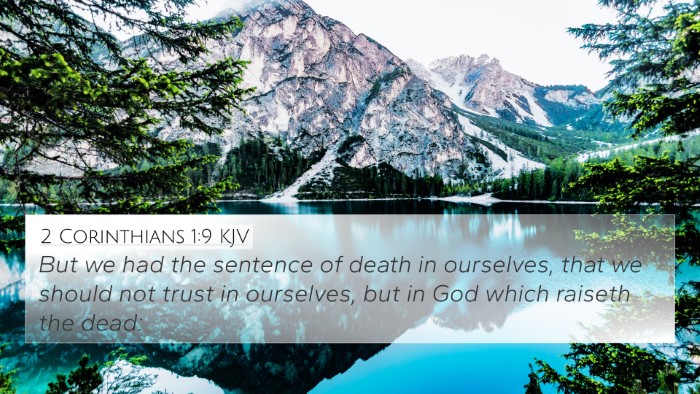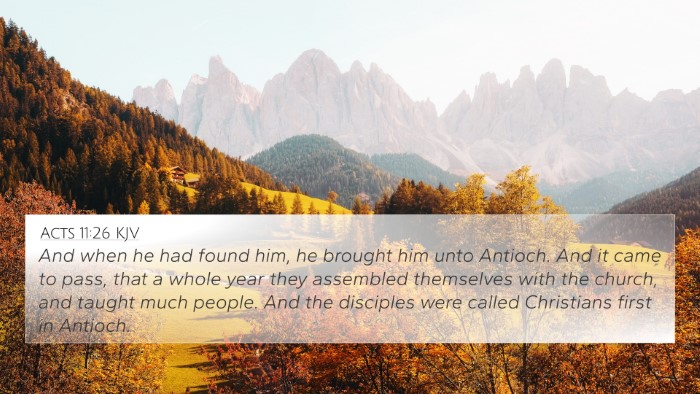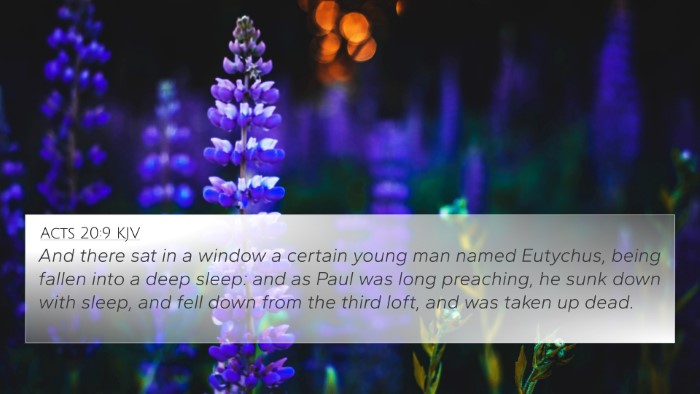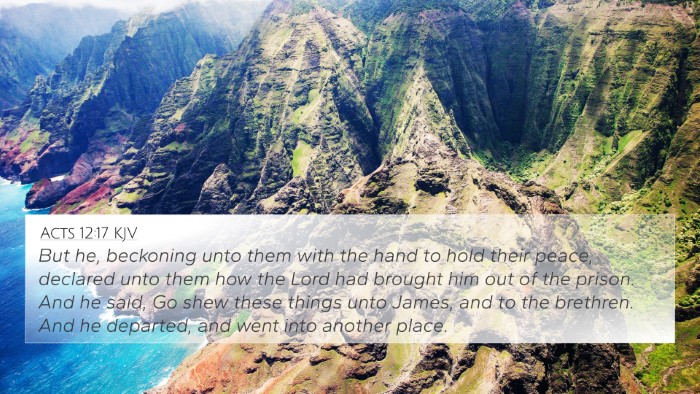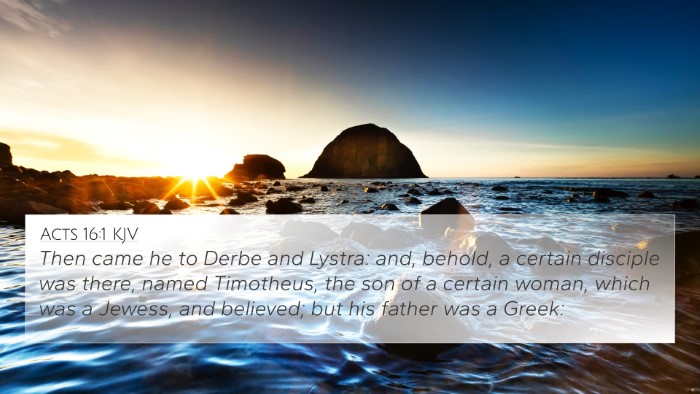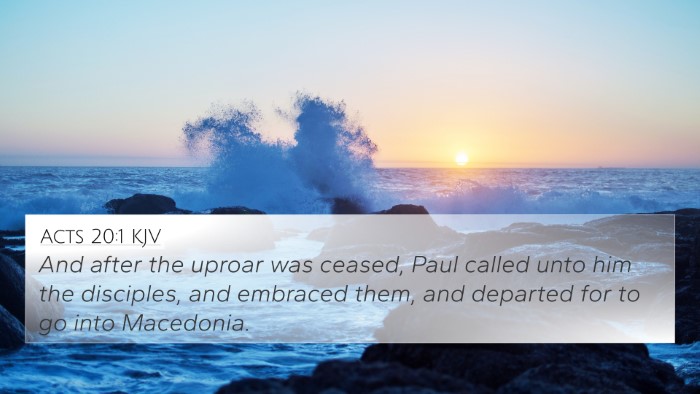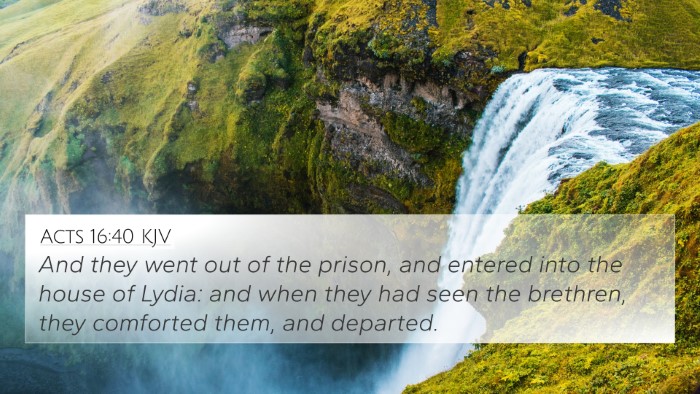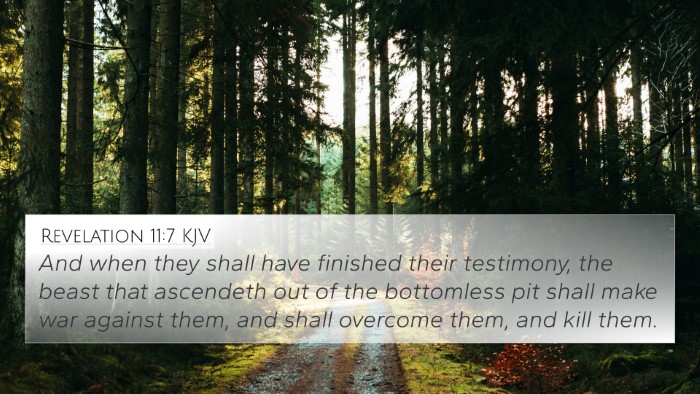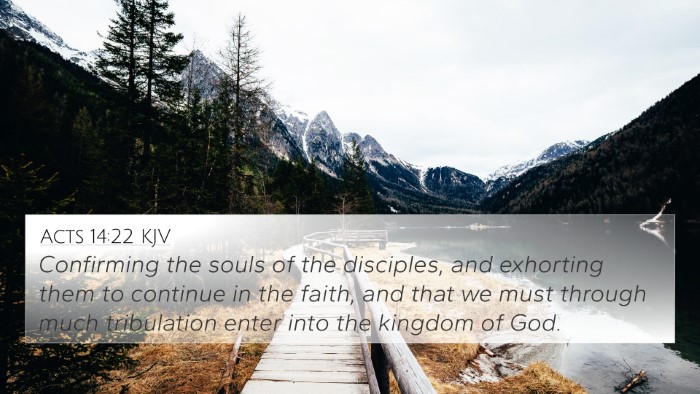Understanding Acts 14:20
Acts 14:20 states: "But when the disciples gathered around him, he got up and went back into the city. The next day he and Barnabas left for Derbe." This passage follows the severe persecution of Paul in Lystra, where he was stoned and presumed dead.
Summary of Insights
This verse highlights several key themes in the early Christian church, including resilience, community support, and the importance of continuous ministry. The context emphasizes the trials faced by the apostles and how they pressed on despite adversity.
Key Themes and Meanings
- Resilience of Paul: Despite being left for dead, Paul's determination to return to the city showcases his unwavering commitment to the Gospel.
- The Role of Disciples: The gathering of disciples around Paul signifies community support in times of crisis, demonstrating early Christian solidarity.
- Continuity of Ministry: Paul's decision to move on to Derbe illustrates the ongoing mission work despite obstacles, urging believers to continue spreading the message of Christ.
Commentary Insights
Matthew Henry's Commentary: Henry emphasizes Paul’s bravery and perseverance, noting that the support of the disciples strengthened him to resume his mission. He critiques the brutality of the opposition faced by Paul while also applauding how this event ultimately led to greater resolve in the apostles.
Albert Barnes' Notes: Barnes focuses on the communal aspect of the disciples gathering around Paul. He highlights the importance of a supportive community in ministry, contrasting it with the isolation one often feels during persecution.
Adam Clarke's Commentary: Clarke elaborates on the geographical significance, noting that Derbe was a crucial next stop in Paul's journey. He discusses how this journey through adversity served to embolden the early church.
Cross References
- 2 Corinthians 11:25: Paul records the perils he faced, illustrating his many sufferings for the Gospel.
- Acts 16:1-3: The continuation of Paul's ministry in Lystra where he later took Timothy as a companion exemplifies his ongoing commitment after persecution.
- Acts 20:24: Paul declares his life is not precious to him if only he may finish his course, reinforcing the theme of perseverance.
- Galatians 6:2: Encourages believers to bear one another's burdens, aligning with the communal support seen in Acts 14:20.
- Philippians 1:27-30: Paul speaks of suffering for the sake of the Gospel, which resonates with his experience in Acts 14.
- 1 Thessalonians 3:3: Paul advises believers not to be unsettled by afflictions, reflecting the teaching demonstrated by his own actions.
- Hebrews 12:1-2: Encourages believers to run with endurance, akin to Paul's resilience in this verse.
Concluding Thoughts
In Acts 14:20, we see the embodiment of the early Christian spirit through Paul’s undeterred courage and the communal strength demonstrated by the disciples. This event not only serves as a testament to their faith but also sets a precedent for the struggles subsequent believers would face.
Connections to Themes and Other Scripture
This passage facilitates numerous connections, illustrating the thematic continuity of perseverance amid trials throughout the Scriptures. The cross-references cited demonstrate how interconnected biblical texts are, providing deeper insights into the challenges and triumphs of faith.
Tools for Bible Cross-Referencing
When studying passages like Acts 14:20, utilizing tools such as a bible concordance or a bible cross-reference guide can enhance understanding by identifying connections between Bible verses and enriching your study the inter-Biblical dialogue.
How to Use Bible Cross-References
Understanding how to effectively use Bible cross-references can illuminate complex themes and narratives in Scripture. By linking Bible scriptures, believers can explore deeper meanings and thematic bible verse connections throughout the Bible.



